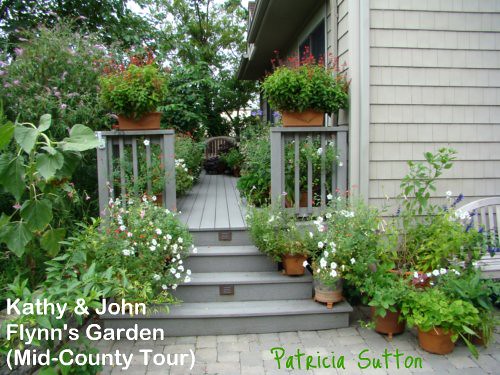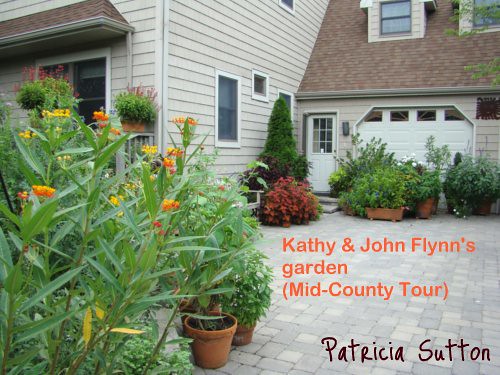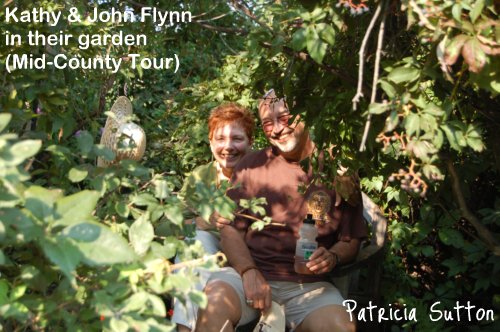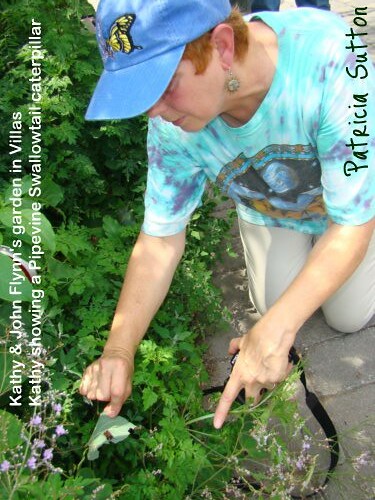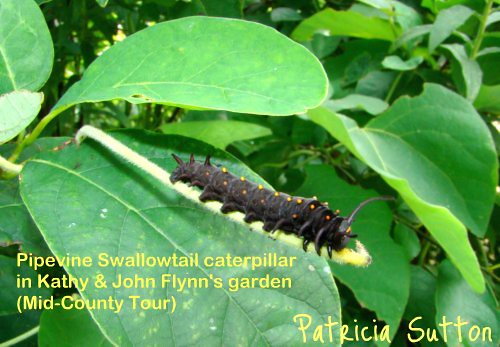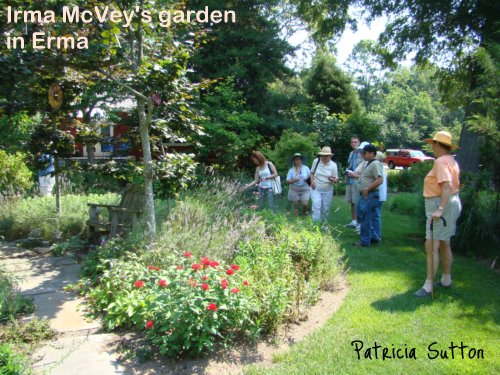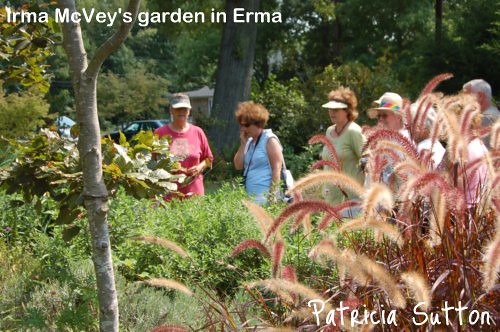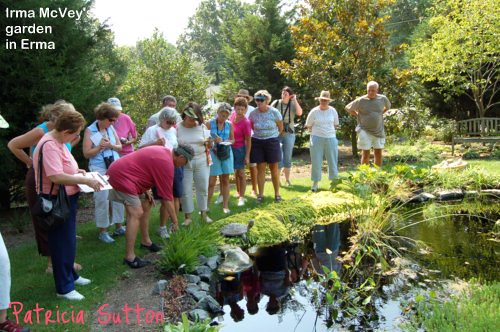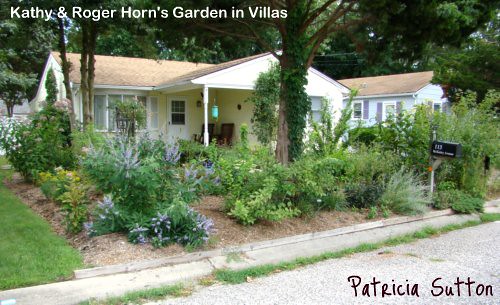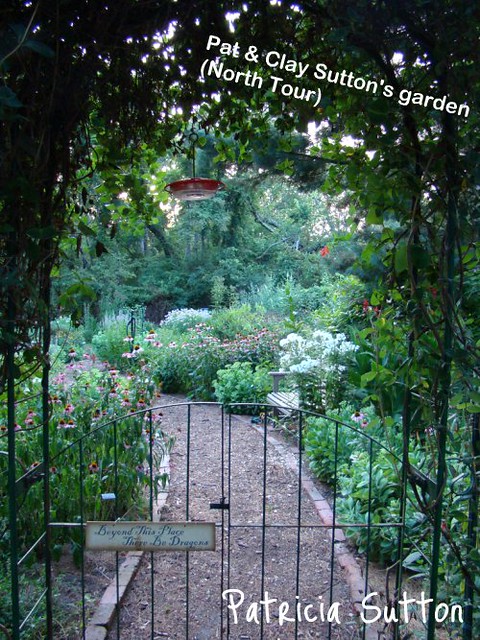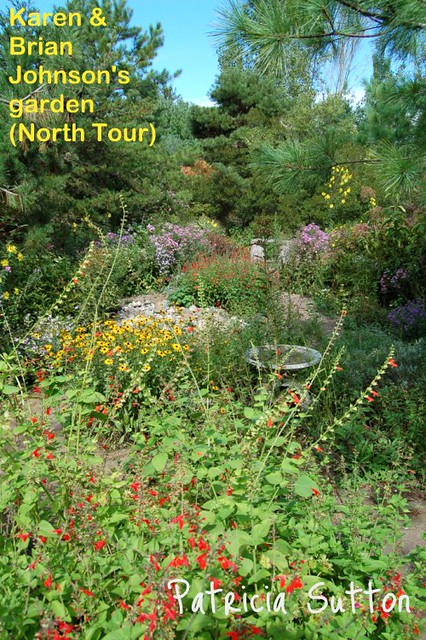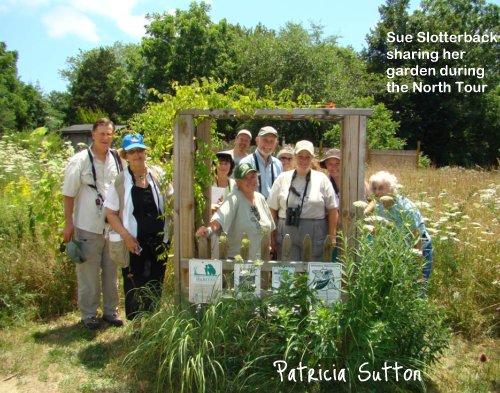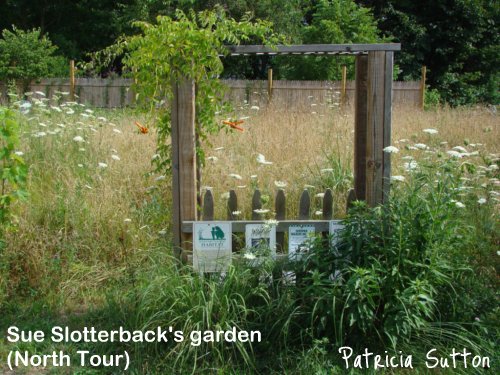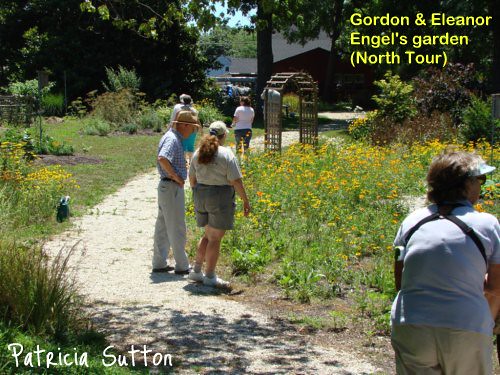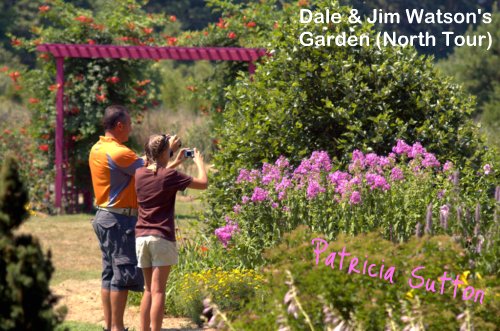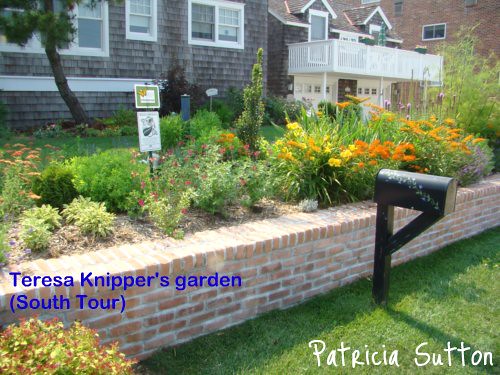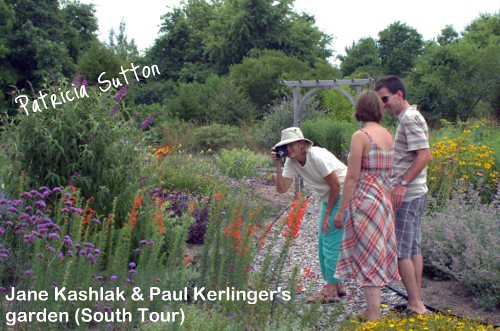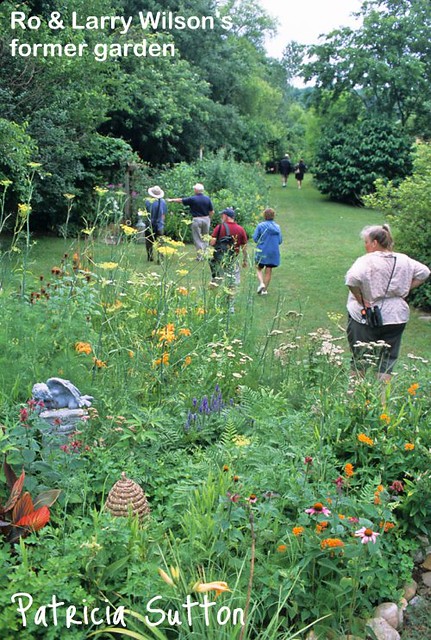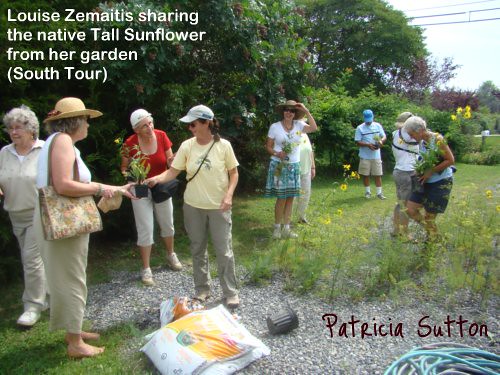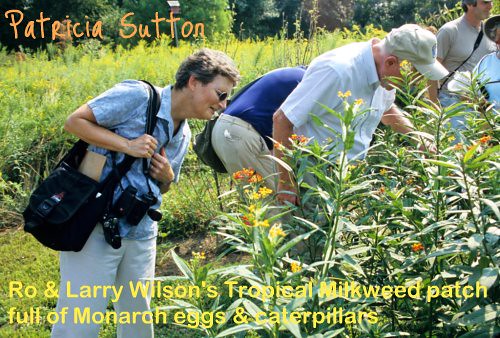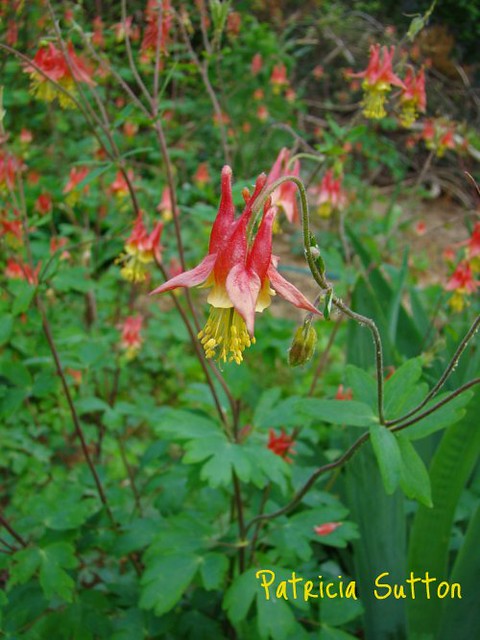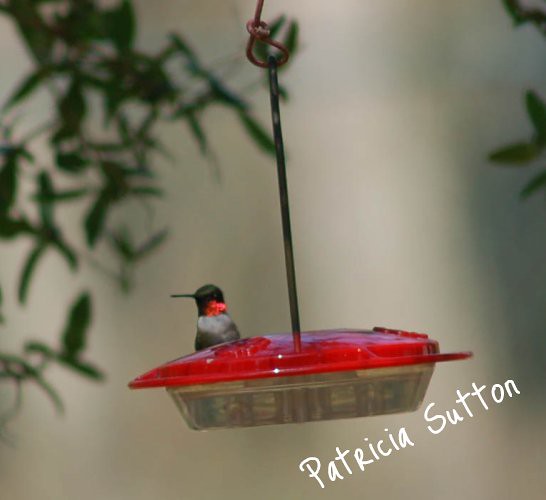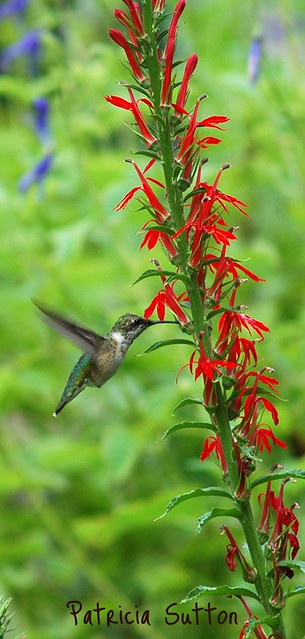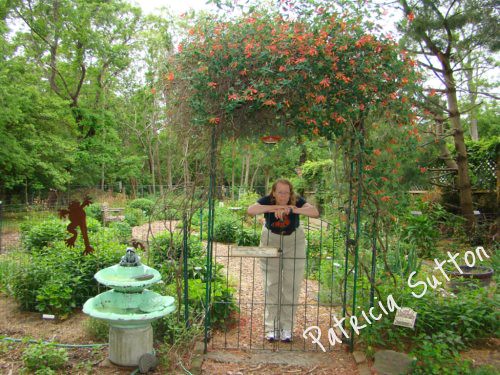 Hi Gang, Amidst all this wintery weather it’s been fun to think of spring and our gardens. I’ve shared below some great opportunities and some of the programs I’ll be giving / teaching / leading in the coming months. NOT to be missed! Mark your calendars and don’t miss these terrific opportunities.
Hi Gang, Amidst all this wintery weather it’s been fun to think of spring and our gardens. I’ve shared below some great opportunities and some of the programs I’ll be giving / teaching / leading in the coming months. NOT to be missed! Mark your calendars and don’t miss these terrific opportunities.
March 5, 12, 19, 26, & April 2 — all Saturdays — 10 am to 3 pm
2011 “Gardening For Wildlife Workshops” with Pat Sutton
at NJ Audubon’s Nature Center of Cape May, 1600 Delaware Avenue, Cape May, NJ 08204 (609-898-8848):
- Saturday, March 5, 2011 – How to Create a Backyard Habitat for Wildlife
- Saturday, March 12, 2011 – How to Create a Butterfly & Hummingbird Garden
- Saturday, March 19, 2011 – How to Create a Wildflower Meadow & Wildlife Pond
- Saturday, March 26, 2011 – Milkweeds for Monarchs
- Saturday, April 2, 2011 – Invasives – Battling the Alien Invaders
Join Pat Sutton for this series of five property-owner workshops on how to enhance your backyard landscaping for wildlife. Native plants and wildlife-friendly practices are the key. The final workshop addresses a key issue, learning to ID invasive problem plants and how to rid your garden of them. Come learn how to plan your own backyard, no matter how small, to attract showy hummingbirds, Monarchs and other butterflies, nesting birds such as bluebirds, wintering birds, and so much more!
Valuable handouts will include Pat’s list of native trees, shrubs, and vines most utilized by wildlife and a list of primary book and internet resources. These workshops have been scheduled for early spring, the perfect time to shake off winter and begin planning and planting (or enhancing) your wildlife gardens.
The first workshop is the backbone to the series (try not to miss it) and will supply a good foundation for the following sessions. Each will include a question-and-answer session and a visit to a nearby backyard habitat. During a working lunch, participants will have the opportunity to discuss their own gardens.
Before this program, download, print, and read the NJ Audubon articles by Pat Sutton: “How to Create a Butterfly and Hummingbird Garden” and “Recommended Plantings to Attract Hummingbirds, Butterflies, and Moths.”
Limit: 30 participants; preregistration is required.
Cost/workshop: $35 member of NJ Audubon Society, $45 nonmember (includes handouts).
Sign up for all five workshops for a discount: $125 member, $150 nonmember.
MORE DETAILS ABOUT EACH OF THE WORKSHOPS IN THE 2011 GARDENING FOR WILDLIFE SERIES
Saturday, March 5, 2011 – How to Create a Backyard Habitat for Wildlife
– 10:00 a.m. to 3:00 p.m.
In the “Go Green” movement, all too often yards are forgotten and, in fact, many yards are the antithesis of green. The first and most important step is to “Go Native,” to favor native plants and wildlife-friendly practices. Pat Sutton will showcase native trees, shrubs, vines, wildflowers, and even weeds that are most beneficial to birds and other wildlife.
From the perspective of a life-long naturalist intimate with the workings of the natural world, Sutton will share countless common-sense garden maintenance techniques that will help property owners avoid common practices that actually harm rather than benefit wildlife.
In addition to the obvious (bird feeders, bird houses, and bird baths), this program is packed with the “how’s and why’s” of attracting birds, butterflies and other wildlife to your backyard, no matter how small. In rapidly developing regions, backyards are critical wildlife habitat for nesting, migratory, and wintering birds, as well as frogs and toads, butterflies, dragonflies, and other beneficial insects.
Patricia Sutton, in her long-time capacity as Naturalist and Program Director with the Cape May Bird Observatory, researched and wrote the New Jersey Audubon Society booklet, Backyard Habitat For Birds, a Guide for Landowners and Communities in New Jersey.
Saturday, March 12, 2011 – How to Create a Butterfly & Hummingbird Garden –
10:00 a.m. to 3:00 p.m.
Pat Sutton, a working naturalist and backyard habitat champion for the past 30 years, will cover the basic “how to’s” for creating a butterfly & hummingbird-friendly garden and yard.
It is often as simply as planting Sweep Pepperbush over Crape Myrtle or Joe-pye-weed, Purple Coneflower, New England Aster, and Goldenrod rather than Marigolds. Double the size of your parsley patch and be amazed by all the Black Swallowtails it attracts. Meet all the needs of hummingbirds and be dazzled by them in your gardens from late April through early October.
The obvious, like good nectar sources and their blooming periods, will be covered. And the not so obvious, like caterpillar food plants butterflies and moths need for egg laying, mud puddling, and the importance of proper cover from wind and weather will also be included.
The mystery of a butterfly’s life cycle and where butterflies winter will be explained. Where hummingbirds go in winter, why they leave us when our gardens are still in bloom, when they return (i.e. when to have your yard ready for them), hummingbird feeder maintenance, and lots of other natural history fun facts will be shared.
The program features wildlife gardens in South Jersey that have successfully transformed typical backyards into dazzling gardens ablaze and alive with butterflies and hummingbirds.
Saturday, March 19, 2011 – How to Create a Wildflower Meadow & Wildlife Pond
– 10:00 a.m. to 3:00 p.m.
MEADOW – Learn how to enhance your backyard landscaping for wildlife by creating a wildflower meadow. Many areas have lost their meadows to subdivisions and corporate headquarters landscaped with acres and acres of sod lawn – monocultures that are green deserts for wildlife, offering no cover, no food (nectar, seeds, etc.), and no beauty (blooming wildflowers and lovely native grasses). Clouds of butterflies and nesting bluebirds can still be found where meadows abound.
If you (or your corporate headquarters) have more lawn than you need and mowing gobbles up precious time and expensive gas, consider turning some of this lawn into a wildflower meadow. Even a small meadow will make a big difference to wildlife. A meadow can be simple to create and Pat Sutton will share the basics. Learn how to convert lawn to meadow, how to maintain your meadow in a simple fashion over time, and how to make it acceptable and attractive to neighbors and visitors.
WILDLIFE POND – Frogs, toads, and dragonflies all need freshwater ponds for egg laying to create future generations. Even a tiny pond will attract and support them. Learn what a true wildlife pond is and how simple it is to create – with no need for running water, filters, fish, and all the fuss. Pat Sutton will share the basics of how to create a wildlife pond and, even more importantly, how to maintain it so that wildlife benefits.
Learn which native plants to add to the pond (and which problem plants to avoid), and don’t be surprised if Sutton offers to share native plants from her very own ponds. Don’t make the same mistake that others have made by creating a “fish pond” or an outdoor bathtub. In a true wildlife pond, expect to attract and get to watch the amazing life cycle of huge Green Darner dragonflies or count a growing population of Leopard Frogs and Green Frogs that find your pond as if by magic. You can watch butterflies and hummingbirds nectaring on Pickerelweed flowers in your pond. Create it and they will come!
Saturday, March 26, 2011 – Milkweeds for Monarchs
– 10:00 a.m. to 3:00 p.m.
Monarch butterflies make the most amazing migration of any insect in the world. Join Pat to learn all about their life cycle and journey from Mexico to the U.S. and Canada, and back to Mexico for the winter months. Their future depends on healthy milkweed stands here in the U.S. where their numbers multiply (spring through fall).
There are many different and beautiful native milkweeds that you can plant in your own garden or in community gardens to help create a path of milkweed from Mexico to Canada that will benefit Monarchs. Plant it and they will come!
Saturday, April 2, 2011 – Battlestar Backyardia – Battling the Alien Invaders – How to deal with invasive species
– 10:00 a.m. to 3:00 p.m.
So many people are not aware of the damage they can do when they plant non-native, invasive problem plants. In a very short while these plants might invade the neighbor’s yard, properties across the street and down the street, and even nearby preserves.
The invasion of non-natives has taken a big toll on butterflies and moths (that need native plants to lay their eggs on) and insect-eating birds looking for butterfly and moth caterpillars.
Sadly, most nurseries contribute heavily to this problem by offering for sale many known culprits, plants that are outlawed in surrounding states and plants that the State of New Jersey is spending enormous amounts of money to control and remove from natural areas.
Purple Loosestrife is a prime example, yet one of many. Most shoppers assume that nurseries are acting responsibly, but the wise gardener needs to be informed (and outspoken) when they find problem invasive plants for sale at local nurseries.
This program will showcase key invasive plants, help you learn how to identify them, and offer suggestions on how to control or remove these plants if they find their way into your garden.
Limit/workshop: 30 participants; preregistration is required.
Cost/workshop: $35 member of NJ Audubon Society, $45 nonmember (includes handouts).
Sign up for all five workshops for a discount: $125 member, $150 nonmember.
Space is limited, and preregistration is required. Please call the Nature Center of Cape May at 609-898-8848 to reserve your spot.
And happy wildlife gardening!
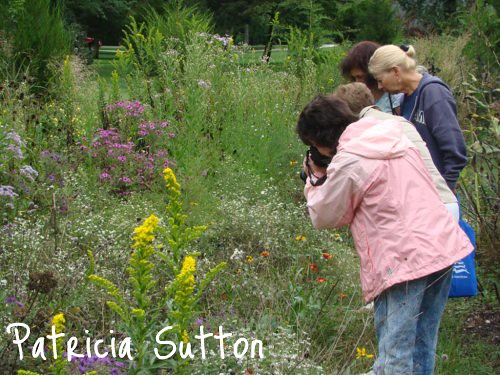 This is the 21st year I’ve been leading these tours of private backyard wildlife gardens. And they just keep getting yummier and yummier!
This is the 21st year I’ve been leading these tours of private backyard wildlife gardens. And they just keep getting yummier and yummier!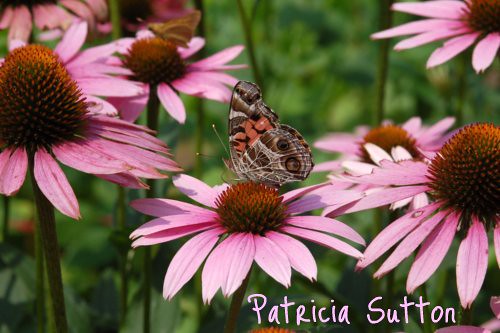 More butterfly and hummingbird gardens are tucked into Cape May County than probably anywhere else in the country. Mid-July is the time of peak butterfly diversity and numbers. Gardens look completely different from one month to the next (so seriously consider all 9 tours). Learn the magic combination of native nectar plants and caterpillar plants that makes a garden especially attractive to butterflies. Design ideas and new wildlife plants will be showcased while tour participants are entertained by a blizzard of butterflies and hummingbirds.
More butterfly and hummingbird gardens are tucked into Cape May County than probably anywhere else in the country. Mid-July is the time of peak butterfly diversity and numbers. Gardens look completely different from one month to the next (so seriously consider all 9 tours). Learn the magic combination of native nectar plants and caterpillar plants that makes a garden especially attractive to butterflies. Design ideas and new wildlife plants will be showcased while tour participants are entertained by a blizzard of butterflies and hummingbirds.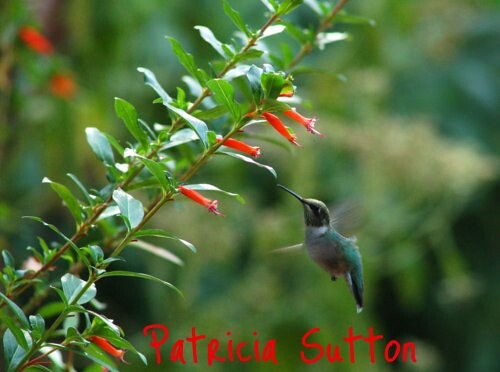
 At the peak of Cape May County’s world-famous fall Monarch migration, tour diverse gardens that have hosted Monarchs since May. Each features native nectar plants and as many as five different kinds of milkweed (used by Monarchs for egg laying to create the next generation). Expect clouds of Monarchs and other butterflies, Monarch eggs, caterpillars, and maybe even a chrysalis. The complex Monarch migration will be both explained and enjoyed.
At the peak of Cape May County’s world-famous fall Monarch migration, tour diverse gardens that have hosted Monarchs since May. Each features native nectar plants and as many as five different kinds of milkweed (used by Monarchs for egg laying to create the next generation). Expect clouds of Monarchs and other butterflies, Monarch eggs, caterpillars, and maybe even a chrysalis. The complex Monarch migration will be both explained and enjoyed.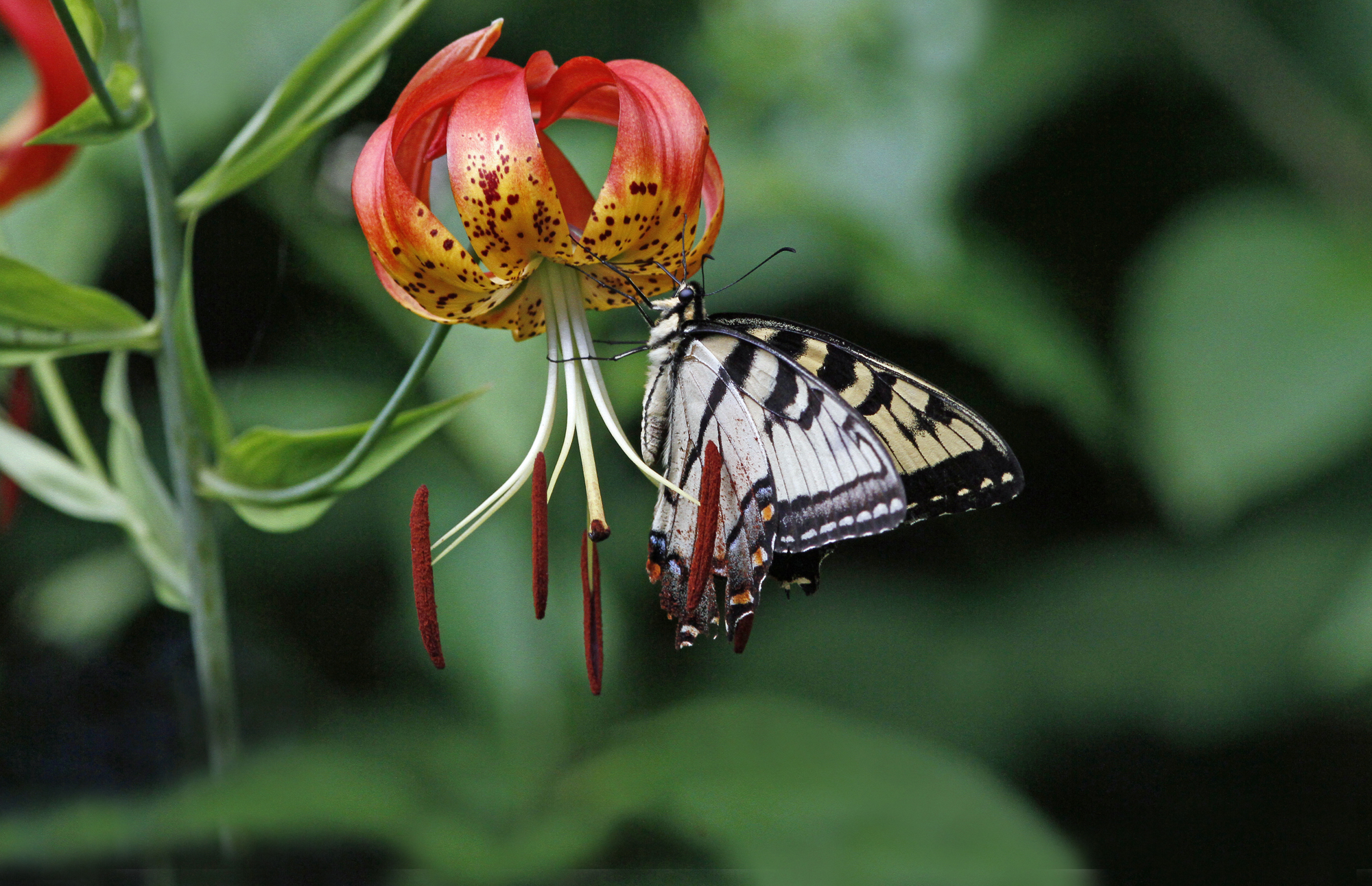
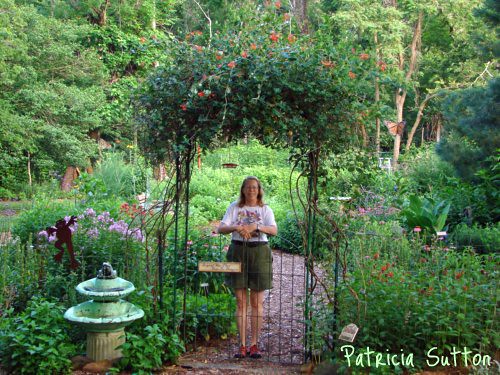 Hi Gang,
Hi Gang, Hi Gardening Friends,
Hi Gardening Friends,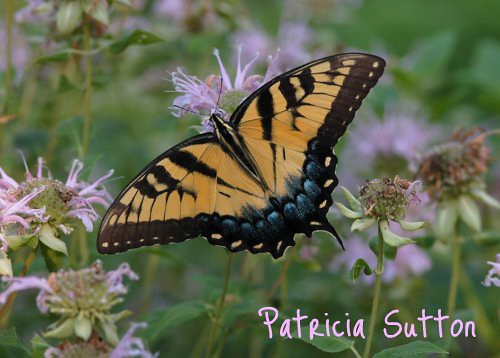 More butterfly and hummingbird gardens are tucked into Cape May County than probably anywhere else in the country. Mid-July is the time of peak butterfly diversity and numbers. Gardens look completely different from one month to the next (so seriously consider all 9 tours). Learn the magic combination of native nectar plants and caterpillar plants that makes a garden especially attractive to butterflies. Design ideas and new wildlife plants will be showcased while tour participants are entertained by a blizzard of butterflies and hummingbirds.
More butterfly and hummingbird gardens are tucked into Cape May County than probably anywhere else in the country. Mid-July is the time of peak butterfly diversity and numbers. Gardens look completely different from one month to the next (so seriously consider all 9 tours). Learn the magic combination of native nectar plants and caterpillar plants that makes a garden especially attractive to butterflies. Design ideas and new wildlife plants will be showcased while tour participants are entertained by a blizzard of butterflies and hummingbirds.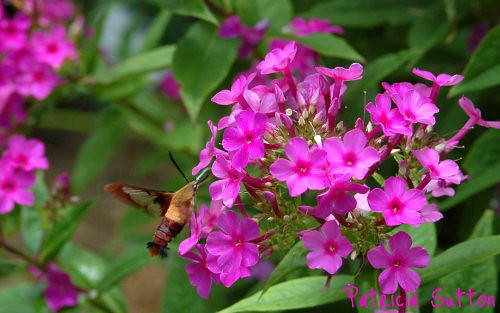 At the peak of Ruby-throated Hummingbird migration, we’ll savor an array of diverse gardens that have hosted nesting hummingbirds since May and are now drawing in dozens of migrants. Native nectar plants, healthy insect populations, water sources, and adequate cover are key elements of each garden.
At the peak of Ruby-throated Hummingbird migration, we’ll savor an array of diverse gardens that have hosted nesting hummingbirds since May and are now drawing in dozens of migrants. Native nectar plants, healthy insect populations, water sources, and adequate cover are key elements of each garden.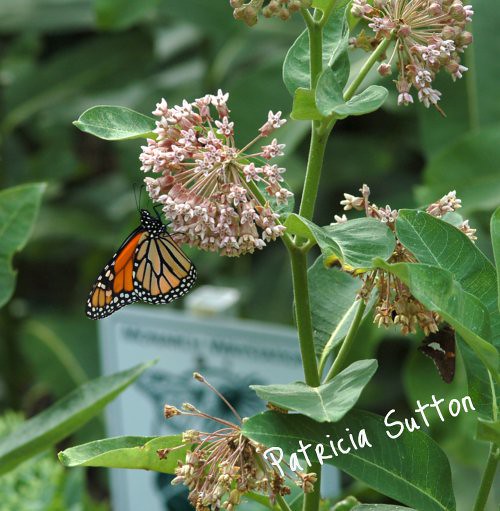 At the peak of Cape May County’s world-famous fall Monarch migration, tour diverse gardens that have hosted Monarchs since May. Each features native nectar plants and as many as five different kinds of milkweed (used by Monarchs for egg laying to create the next generation). Expect clouds of Monarchs and other butterflies, Monarch eggs, caterpillars, and maybe even a chrysalis. The complex Monarch migration will be both explained and enjoyed.
At the peak of Cape May County’s world-famous fall Monarch migration, tour diverse gardens that have hosted Monarchs since May. Each features native nectar plants and as many as five different kinds of milkweed (used by Monarchs for egg laying to create the next generation). Expect clouds of Monarchs and other butterflies, Monarch eggs, caterpillars, and maybe even a chrysalis. The complex Monarch migration will be both explained and enjoyed.